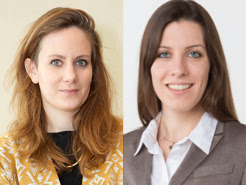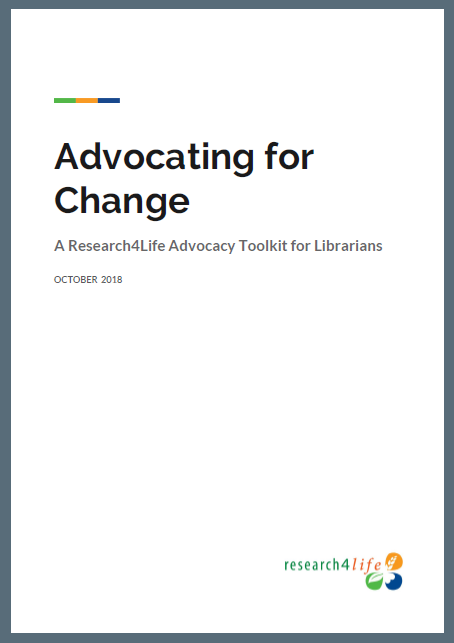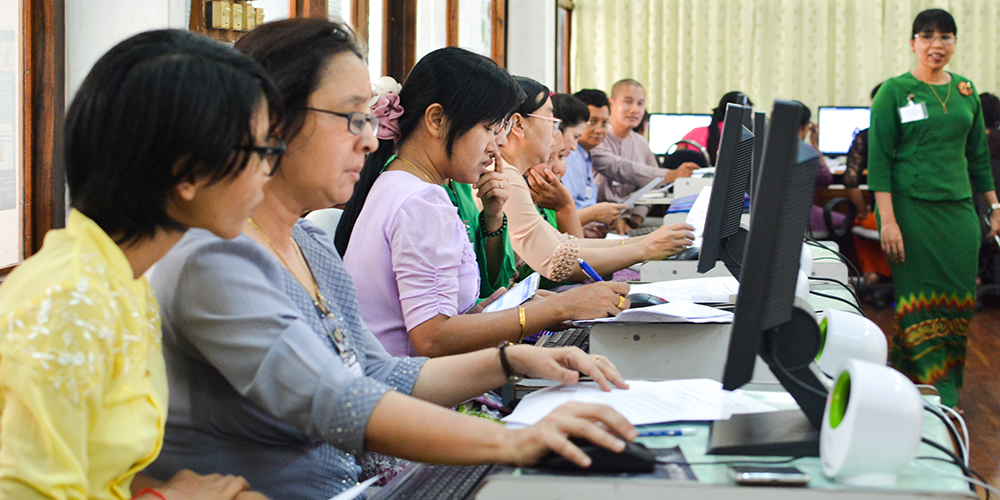Research4Life Newsletter May 2019
Dear Research4Life partners and supporters, we’re proud to share with you the many projects we worked on in the past six months, and the successes the partnership achieved.
We are excited about important additions to the Research4Life family: Dr. Edda Tandi Lwoga is joining us as User Representative from the College of Business Education in Dar es salaam, Tanzania; while SPIE Digital Library, Digital Science’s Dimensions and CAB Abstracts have been added to the Research4Life content, which has reached the important milestone of 100,000 resources! We’ve also been busy with celebrations: GOALI, the youngest Research4Life programme, celebrated its first anniversary, and ARDI will celebrate its tenth during the upcoming General Partners Meeting.
Finally, we’re happy to announce that our website is now also available in Spanish and Portuguese soon French. Speaking of online resources, don’t forget to check out the Advocacy Toolkit and the newly published Social media guidelines. Read ahead for more, and thank you to all Research4Life partners for your efforts and contributions.
Domiziana Francescon (The Elsevier Foundation) and Karna Wegner (FAO), co-chairs, Research4Life Communications and Marketing Team 
Table of contents
- Celebrating one year of access to legal information
- ARDI turns ten!
- Research4Life Advocacy Toolkit
- Edda Tandi Lwoga joins Chandra Bhushan Yadav as Research4Life’s user representative
- Research4Life website goes multilingual!
- New content and resources now available
- An update from the Finance team
- Capacity development activities
- Social media guidelines
- First joint subcommittee meeting
Celebrating one year of access to legal information

GOALI (Global Online Access to Legal Information), the youngest Research4Life programme, was launched in March 2018 to provide developing countries with access to academic legal content and training. Each month, around 1,000 users log in to GOALI, mostly from universities, research institutions and government offices.
To mark the first anniversary of the program, the GOALI team asked users for their feedback. The results confirm that librarians play a key role in promoting access to high-quality scientific resources. They often lack access to legal information therefore, GOALI helps to fill this gap. As Emmy Medard Muhumuza from Busitema University, Uganda, highlighted: “Most disciplines have a legal aspect and therefore GOALI is useful to all institutions. It has also content other than legal.” In addition, as Pascal Soubeiga, a librarian from Burkina Faso, and others emphasized: “legal information is important to know our rights but also to respect the rights of others.
Recently, several free access databases have been added to the GOALI portal, like NATLEX, the ILO database of national labour and social security legislation, and African Journals OnLine (AJOL), the world’s largest online library of journals published in Africa. Since users requested more primary legal content and local resources, the GOALI team is approaching publishers who can offer this.
In January 2019, colleagues from Cornell Law School Library facilitated the first GOALI training in Johannesburg. “We hope that we will be able to run more sessions soon. We work closely with our Research4Life partners to develop common online training modules for all Research4Life programmes, including GOALI,” said Richelle Van Snellenberg, programme manager.
ARDI turns ten!
Since WIPO launched ARDI in July 2010, it has been promoted to all eligible developing and least-developed countries within the framework of the Technology and Innovation Support Center (TISC) Program. The WIPO TISC Program provides access to patent information and scientific publications to stakeholders such as universities, technical schools, research centers, laboratories, inventors, innovators, and small- and medium-sized enterprises (SMEs).
When ARDI was launched in July 2010, there were less than 100 institutions registered in less than 50 countries. To date, more than 1 800 institutions in over 100 countries use the program. This confirms the growing interest. The content of the program has grown along with the users: at the start there were only about 14 publishers, today there are over 50. The fact that ARDI joined Research4Life in 2011 has contributed extensively to its promotion, since users only need one login to access the five programs.
Several hundred students in the eligible countries, some of which are mentioned above, have benefited from the resources of ARDI to carry out their theses, citing the same references as the ones cited in the industrialized world, and thus finding out concrete solutions to local scientific challenges. This is how ARDI contributes to the reduction of knowledge gaps between developing and industrialized countries at WIPO. Many testimonials are still being collected which explain the usefulness of the ARDI Program for the promotion of academic research in developing countries.
Research4Life Advocacy Toolkit

In recent years, Research4Life noticed its users’ need for support in advocating for Research4Life in their institution. For this reason, Research4Life created its Advocacy Toolkit, a practical learning tool that helps librarians get the support from decision makers, administration or management in order to advance academic libraries and promote Research4Life and its five programmes.
The toolkit, which consists of a practical guidebook and a customisable PowerPoint presentation, was launched in February 2019 with a promotional campaign on social media. To date, it has been downloaded over 500 times. Translations in French and Spanish were launched in April 2019. Download the toolkit.
Edda Tandi Lwoga joins Chandra Bhushan Yadav as ResearchLife’s user representative

Edda Tandi Lwoga is an Associate Professor and Deputy Rector for Academic, Research and Consultancy at the College of Business Education in Dar es salaam, Tanzania. Since finding out about the programme, she has been one of Research4Life more adamant supporters.
Tandi has taken a lead in creating awareness of the Research4Life and TEEAL programs and has facilitated a number of workshops in Sub-Saharan Africa. Her three-year term begins in July. Read the interview.
Research4Life website goes multilingual!
To service more of our users in different corners of the world, we translated our website to French, Spanish and Portuguese with the much appreciated help of volunteers. The translations were launched in February. To change the language, simply click one of the languages in the menu at the top right corner of the site. The French version will be launched before the summer. Have a look: www.research4life.org.
New content and resources now available

Research4Life now provides access to up to 100.000 resources! By the end of the first quarter of 2019, the amount of scholarly and professional content available had grown to an impressive 22,500 peer-reviewed journals, over 80,000 academic books and over 120 other resources such as databases and reference works.
In recent months, we have been working hard to bring new publishers to the partnership, focusing on subject areas that have not featured strongly in the collections, such as technology, engineering, chemistry and mathematics. We are also bringing in new types of resources, extending the range of tools and reference materials which can add value to the core collection of primary research publications.
A particular highlight in the first quarter of 2019 was the addition of the journals, books and conference proceedings from the SPIE Digital Library, covering applied research in optics and photonics. We also confirmed the inclusion of the CAB Abstracts database, an important resource for agriculture and the applied life sciences.
We were especially excited to reach an agreement with Digital Science to include Dimensions for all Research4Life users. Dimensions is a next-generation linked research information system that makes it easier to find and access the most relevant information, analyse research outcomes, and gather insights to inform future strategy. It brings together over 128 million publications, grants, policies, data and metrics for the first time, enabling users to explore over 4 billion connections between them.
Research4Life users can expect to see more content over the coming months! To enable a smooth transition for new publishers, we developed a workflow that will enable us to get the best out of our partnership and identify which resources are particularly relevant.
An update from the Finance team
The newly reconstituted Finance Oversight Subcommittee met recently to agree new Terms of Reference and a Procurement Policy for any significant items of expenditure. This is in line with the new Governance procedures approved by the Executive Council. The committee will meet again in June to review the income and expenditure of Research4Life over the past year and to construct a 2020 budget for approval by the General Partners Meeting in July.
Capacity development activities

Research4Life programme partners continue to deliver capacity development activities both online and in person. In the last six months, 35 trainings took place in 14 countries as well as online courses. Together, they cover a large number of participants from a diverse geographical landscape.
In January, the first GOALI training took place in Johannesburg, South Africa. The goal of the workshop was to instruct information professionals working in sub-Saharan Africa about the structure of legal information and research and how GOALI facilitates legal research.
The AGORA Team started the year with the online course “Fundamentals of Information Literacy and Access to Global Online Research in Agriculture” in English, French and Spanish. This course covers the fundamentals of information literacy and provides the necessary skills to effectively use AGORA. Over 1,400 people from 68 countries joined. The course will be repeated in the last quarter of the year; users can register online.
In February, Hinari conducted face-to-face workshops funded by Librarians Without Borders and an Elsevier Foundation grant at the University of Gitwe in Rwanda. The workshops were tailored to nursing students (150 participants). Additionally, fifteen librarians and lecturers attended a three-day ‘train the trainers’ workshop. In April, the Resource Centre for Primary Health Care conducted a three-day training workshop on digital health information focused on Research4Life in Kathmandu, Nepal.
In March, the United Nations Environment Programme (UNEP) ran a four-day Research4Life exhibition during the UN Environment Assembly, a forum that brings together representatives from all UNEP member states and various non-state actors. The booth registered about 75 participants, ranging from researchers to policymakers.
The Capacity Development Team has been in contact the Digital Access to Research (DAR) project established by UN Technology Bank. The objective is to establish a strong collaboration between Research4Life and DAR to promote digital access to research and technical knowledge across the least developed countries.
In the coming months, the team will focus on developing and delivering an e-learning course thanks to support from the Elsevier Foundation. The objective is to release the first edition of the online course by November 2019.
Social media guidelines
Many people communicate on behalf of Research4Life, and support us in making the partnership and its programmes known. To help them amplify their message through our official channels and to make sure there is no confusion about which are these channels, we have developed a document that can be shared with everyone who communicates online about our partnership. The guidelines can be requested from the communications team: [email protected].
First joint subcommittee meeting
In March, Research4Life held the first online meeting with all subcommittees. This was largely at the request of the members of the subcommittees themselves to provide a space for subcommittees to report on their Goals and Objectives for the year ahead and report on their (ongoing) activities and plans and look back on what has been achieved so far, other than at the General Partner Meeting. It was also intended as a space to provide lively discussion, interaction, inspiration, feedback and cross-fertilization between the various subcommittees.
The call-in session was well-attended and efficiently facilitated by the Chair of the Research4LifeExecutive Council, Kimberly Parker. It proved a great opportunity for the various subcommittees to showcase their activities and interact directly with other subcommittee members. There were many questions and lots of feedback and food-for-thought to digest and take on board for the subcommittees.
All in all, this was a worthwhile online gathering that will be continued and repeated to provide a more frequent form of interaction between the various subcommittees, which are:
- Capacity Development
- Communications
- Eligibility
- Finance Oversight
- Fundraising
- Technology
The next meeting is scheduled in November.





